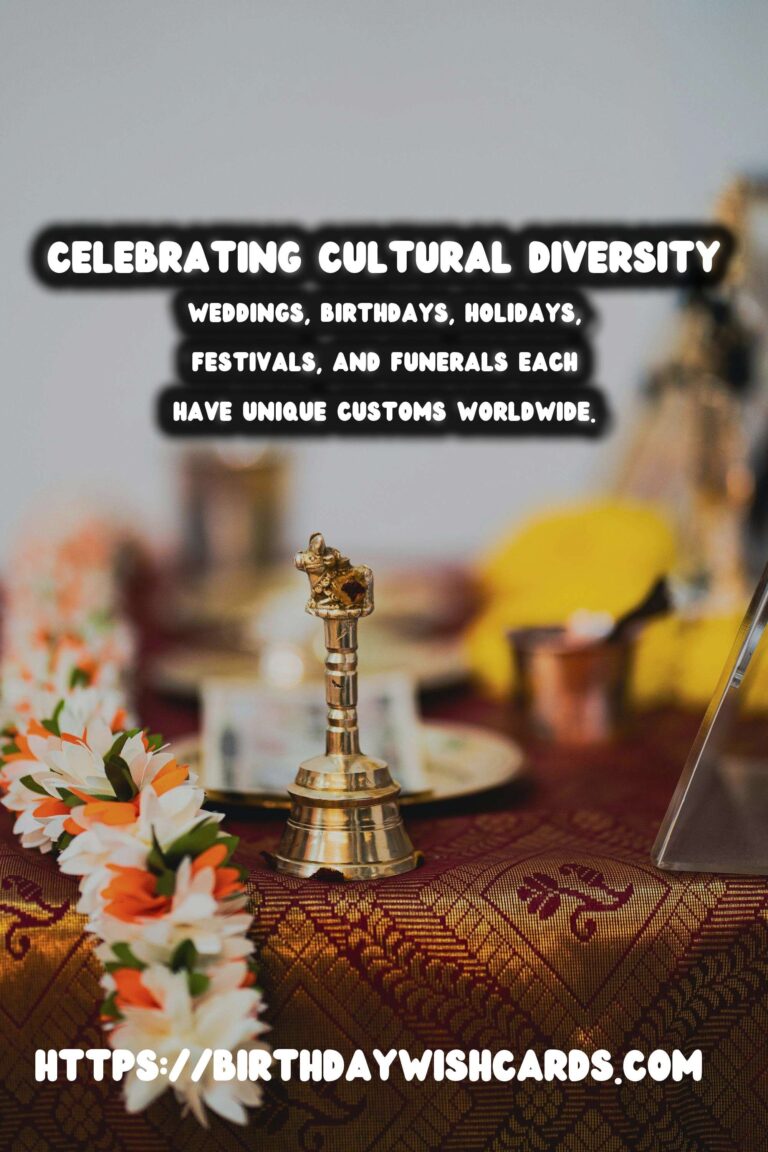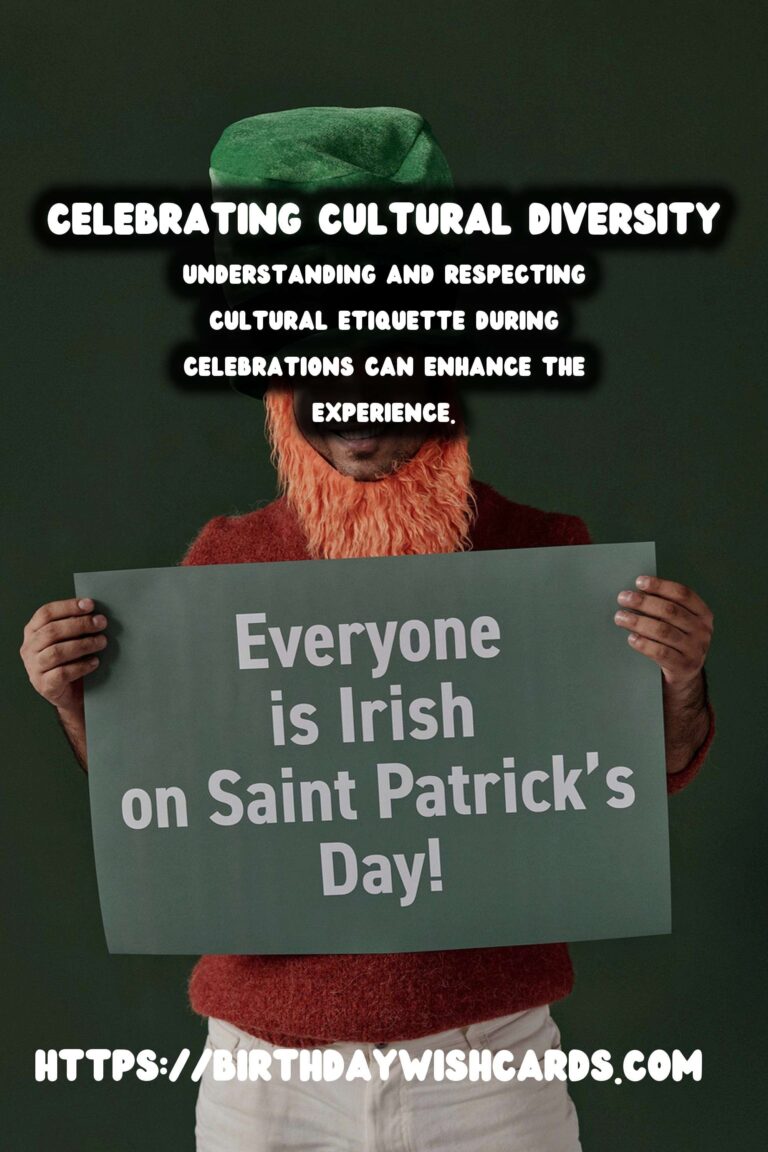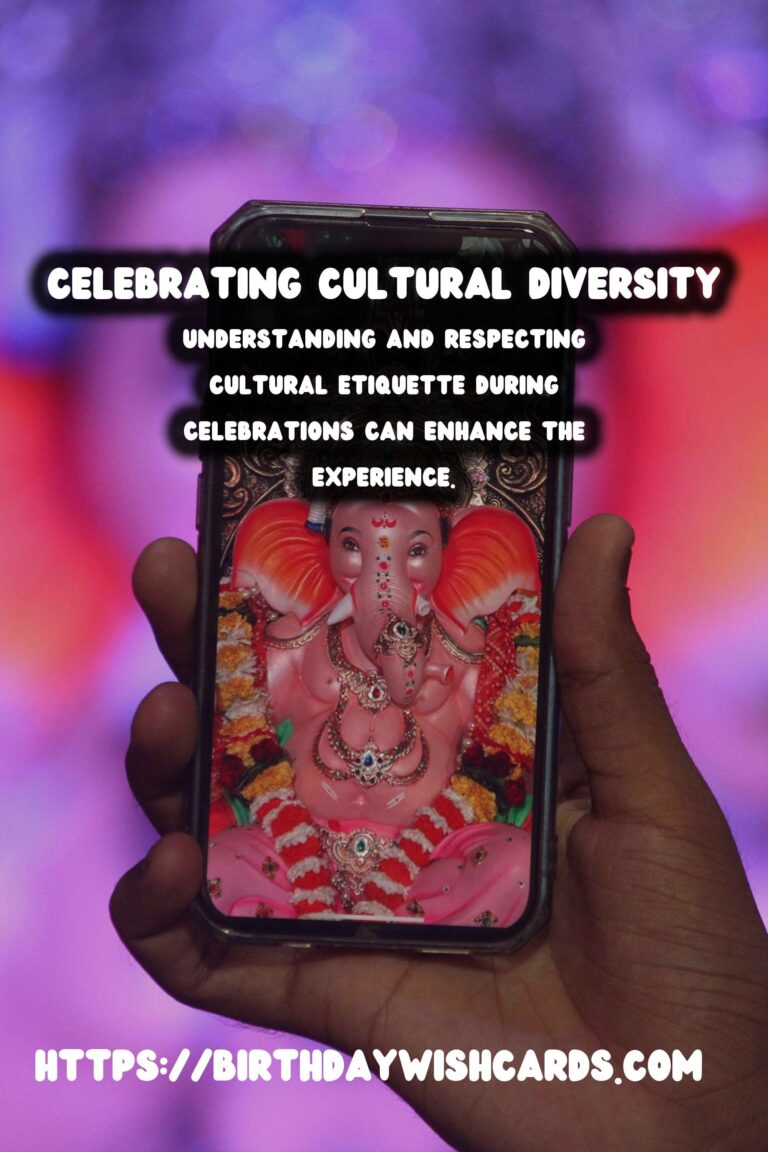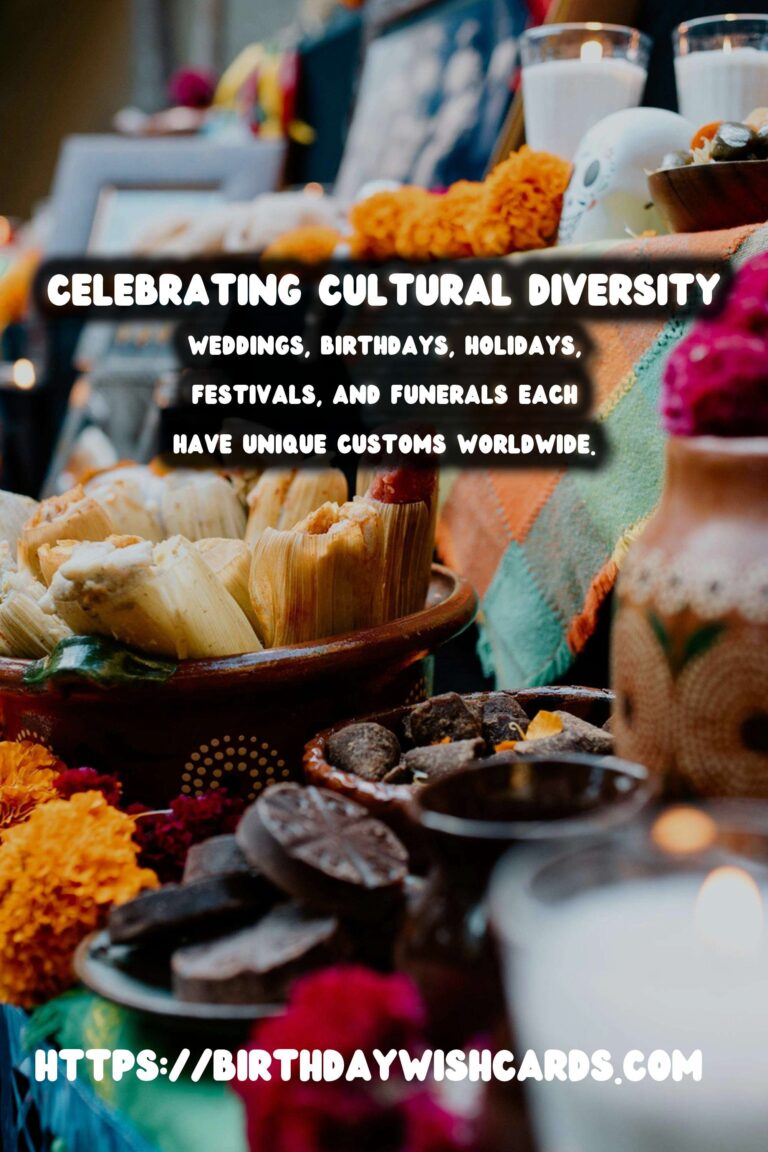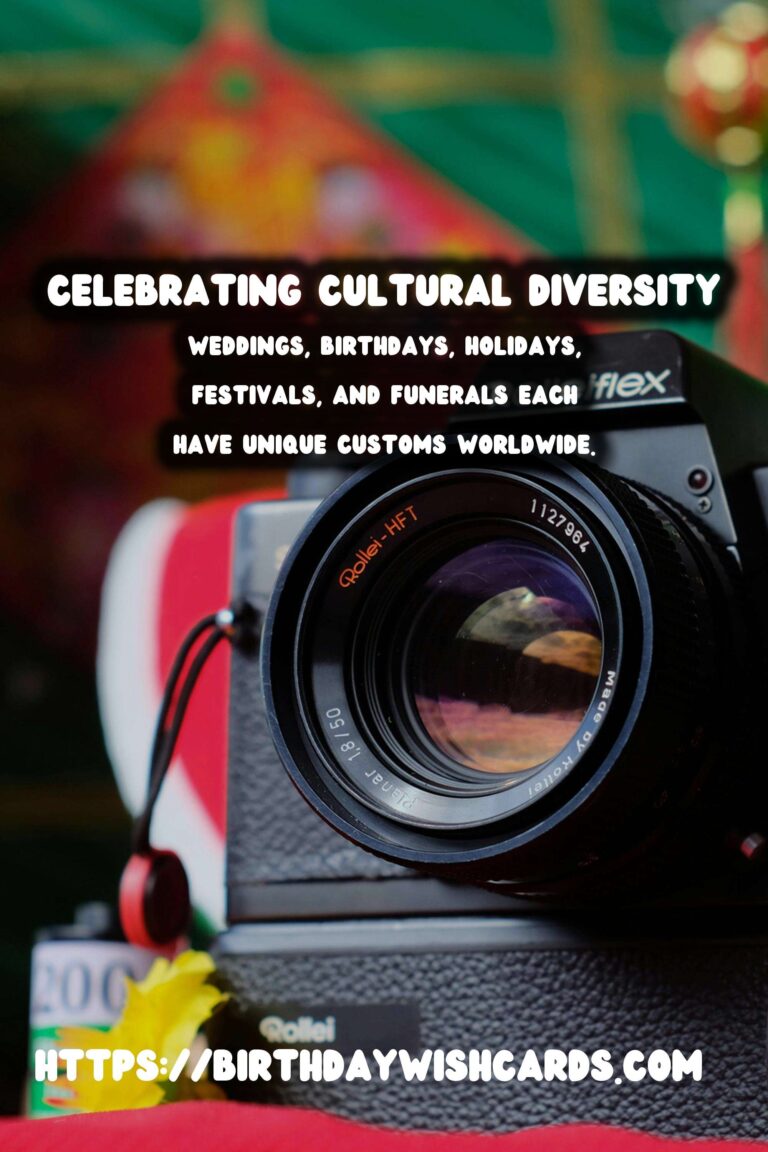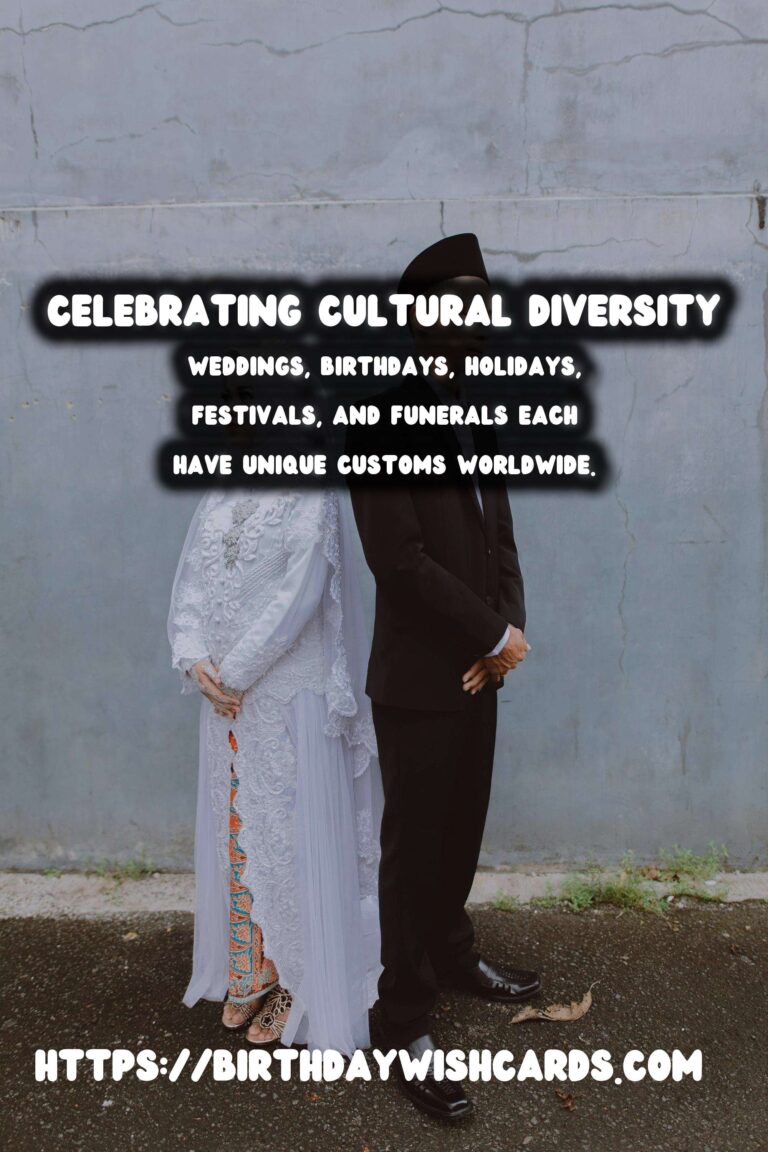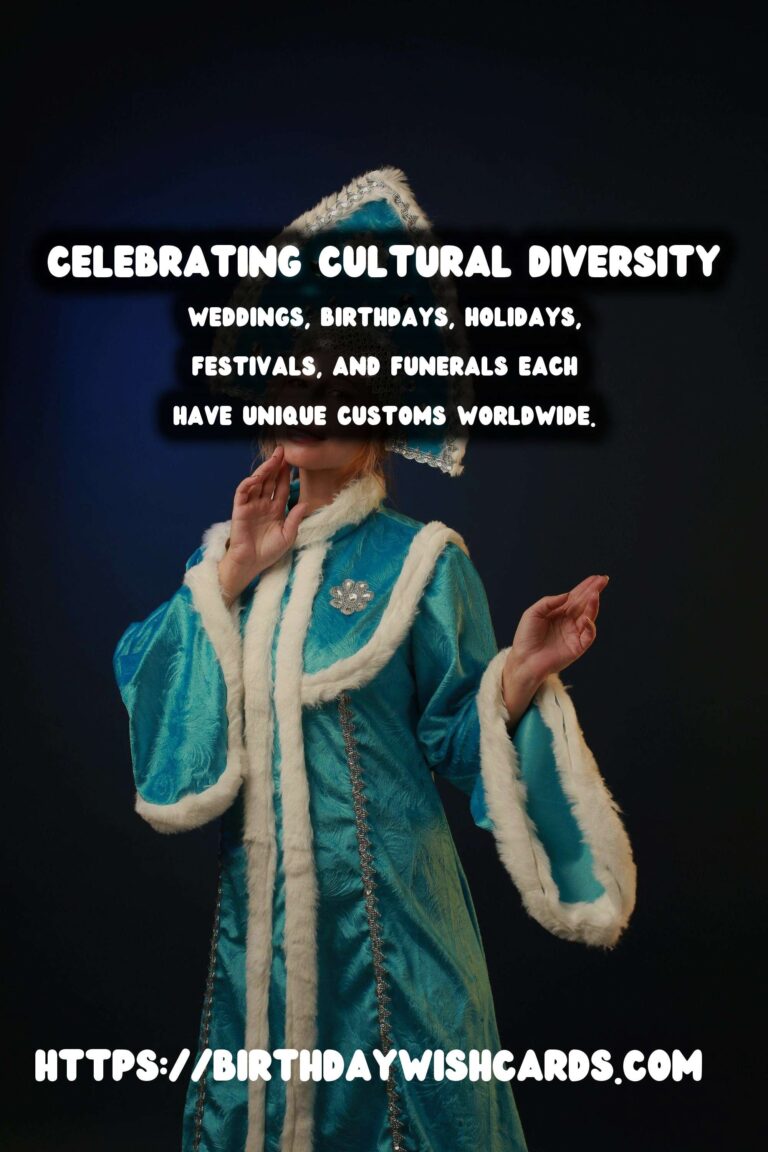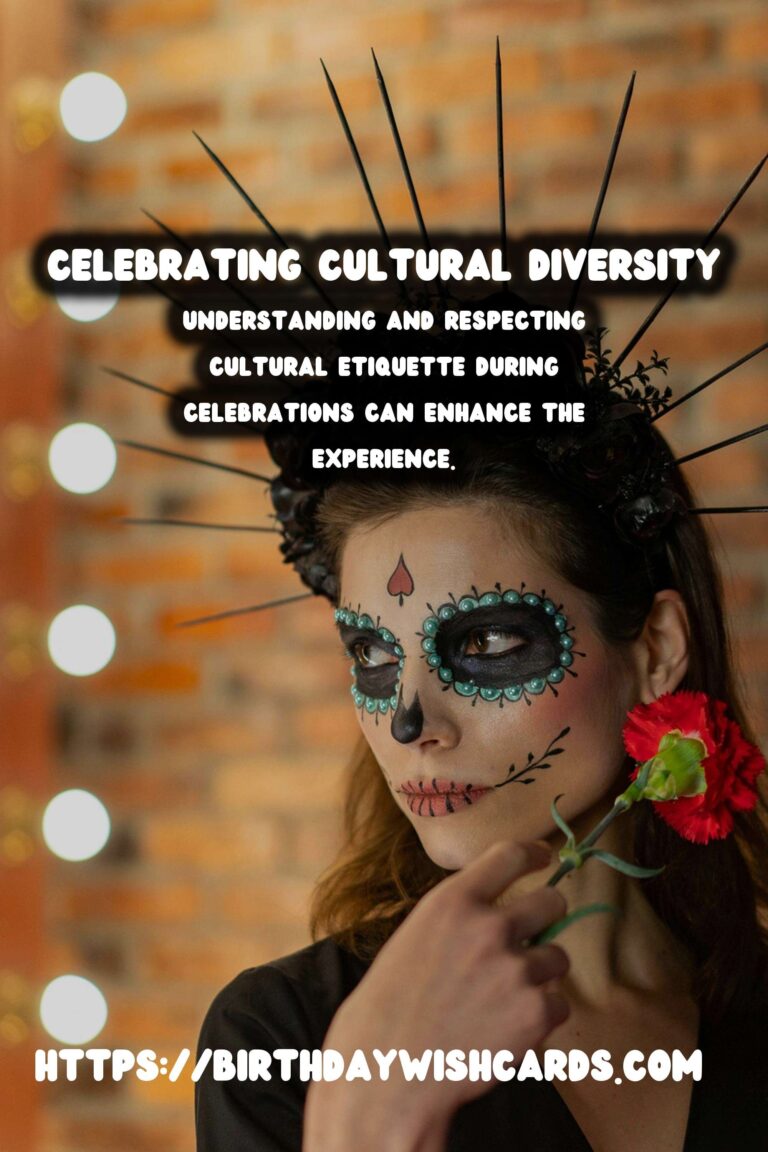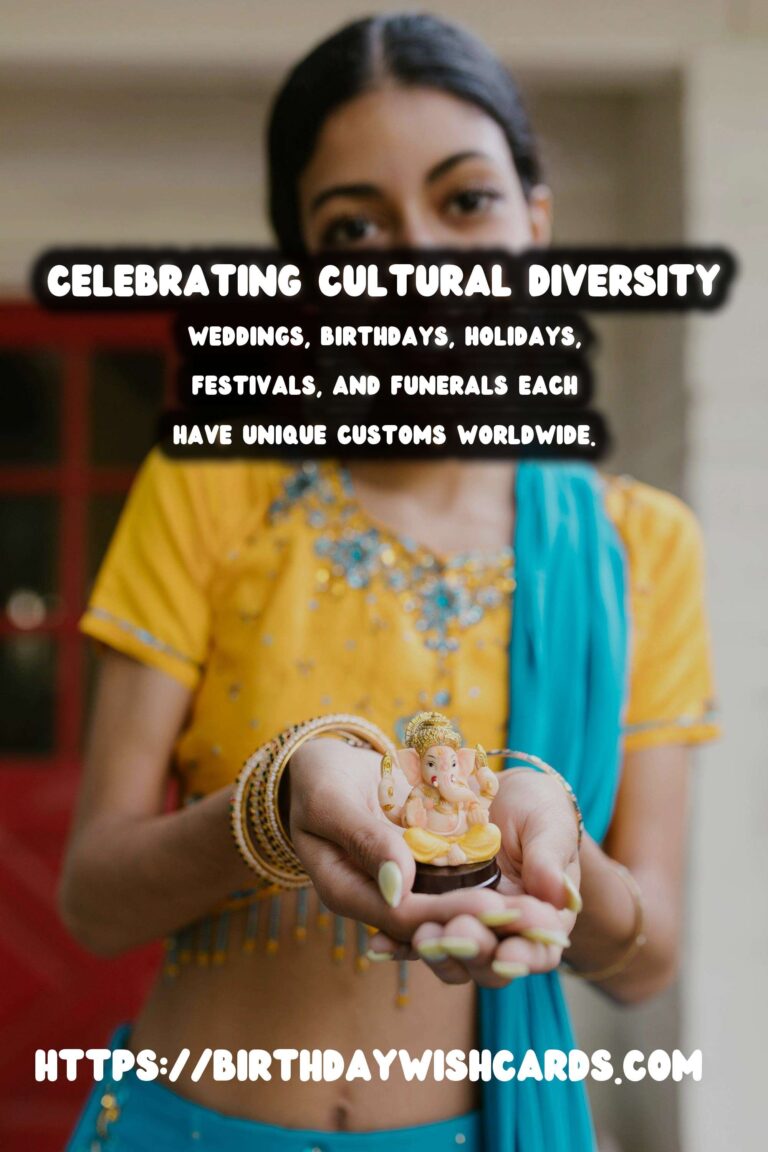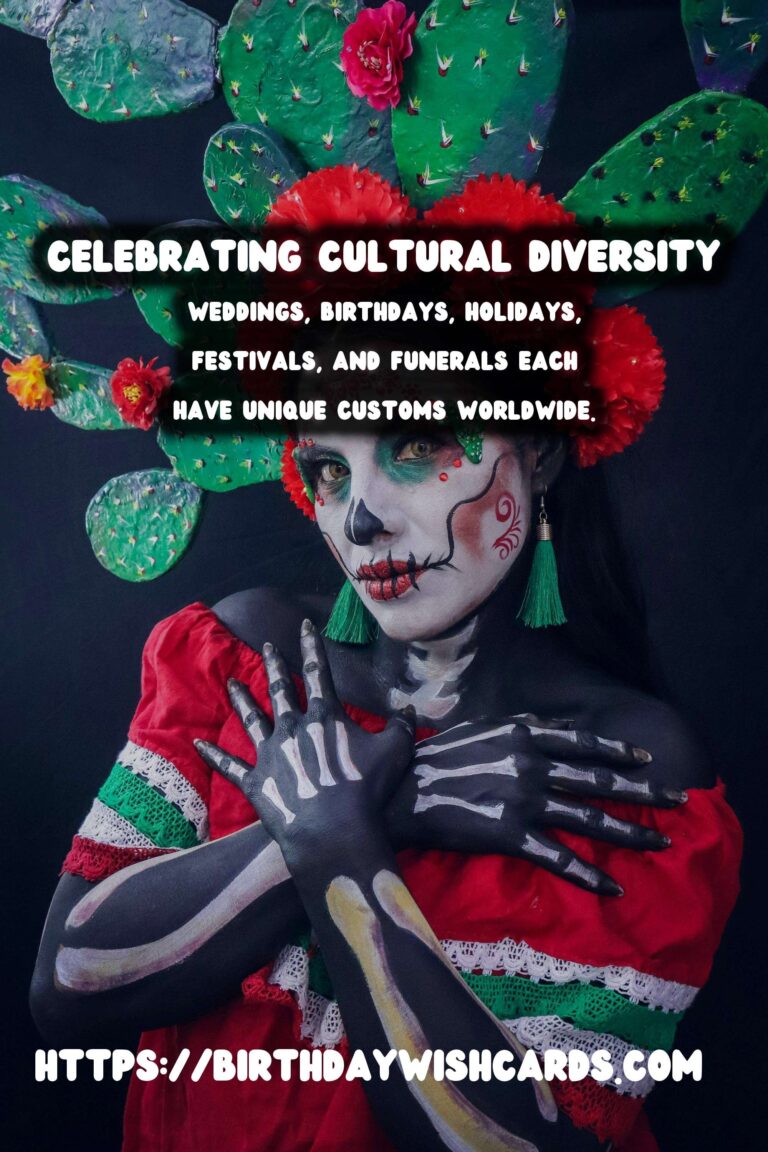
Celebrations bring people together, creating joyful moments and cherished memories. However, understanding and respecting cultural etiquette during these gatherings can enhance the experience for everyone involved. This post will delve into the various celebration etiquettes observed around the globe, ensuring that your special day is both respectful and delightful.
The Importance of Celebration Etiquette
Etiquette serves as a guide for behavior, helping individuals navigate various social situations with grace. In the context of celebrations, it reflects respect for traditions, enhances interpersonal relationships, and fosters harmony among attendees. To make your day special, familiarize yourself with the etiquette specific to the culture or region you are celebrating in.
1. Weddings: A Cultural Kaleidoscope
Weddings are one of the most significant celebrations across cultures. Each country has its unique customs:
Denmark
In Denmark, it’s customary to stand up and kiss your partner when the bride and groom leave the room. This charming tradition encourages participation and adds to the festive atmosphere.
India
Indian weddings are known for their richness in customs. Guests mold their hands in henna as a form of blessing. It’s respectful to arrive on time, as tardiness can be considered disrespectful.
2. Birthdays: Celebrating Life
Birthday celebrations vary globally, with unique themes and traditions:
Japan
In Japan, the traditional birthday celebration is quite different from the Western model. Instead of being a day focused on the individual, it’s seen as a time for family gatherings. Gifts are typically given in special wrapping, reflecting the giver’s consideration.
Mexico
The Piñata is a staple in Mexican birthday parties. It’s crucial to let the birthday child take the first swing, as it is believed to bring good luck for the year ahead. Kids often wear blindfolds, adding an element of fun!
3. Holidays: Cultural Celebrations
Holiday celebrations around the world often carry unique regulations:
Chinese New Year
During the Chinese New Year, it’s essential to avoid giving gifts in sets of four, as the number four is associated with death. Red envelopes containing money are exchanged, symbolizing good luck.
Thanksgiving in the USA
Thanksgiving is about gratitude. When invited, it’s polite to bring a dish or a drink to share. Expressing thanks to the host is also a must.
4. Festivals: Varying Customs Across Regions
Festivals often reflect local beliefs and histories:
Holi in India
Holi is a vibrant festival of colors in India. It’s customary to greet others with “Holi Hai!” while throwing colored powders. However, respect others’ boundaries, as some people may prefer to abstain.
Oktoberfest in Germany
At Oktoberfest, it’s appropriate to dress in traditional attire, enhancing the experience. When toasting, making eye contact is essential, as failing to do so is considered bad luck.
5. Funerals: A Time for Respect
Understanding the etiquette for funerals is crucial for demonstrating respect.
Jewish Traditions
In Jewish culture, it’s customary to avoid excessive talking during the service. The focus is on remembrance and respect for the deceased’s family.
Asian Cultures
Many Asian cultures emphasize the color of clothing worn at funerals. Typically, white is worn in Chinese customs, while black attire is more common in Western funerals.
Conclusion: Making Your Celebration Special
Being aware of and practicing celebration etiquette across cultures not only helps in making your special day memorable but also leaves a positive impression on your guests. Respect, understanding, and a willingness to learn about different customs will surely make your celebrations more enjoyable.
As the world becomes more interconnected, embracing cultural diversity can enrich personal and shared experiences. Use the insights provided in this post to create a respectful and inclusive celebration, no matter where you are in the world.
Understanding and respecting cultural etiquette during celebrations can enhance the experience. Weddings, birthdays, holidays, festivals, and funerals each have unique customs worldwide. 
